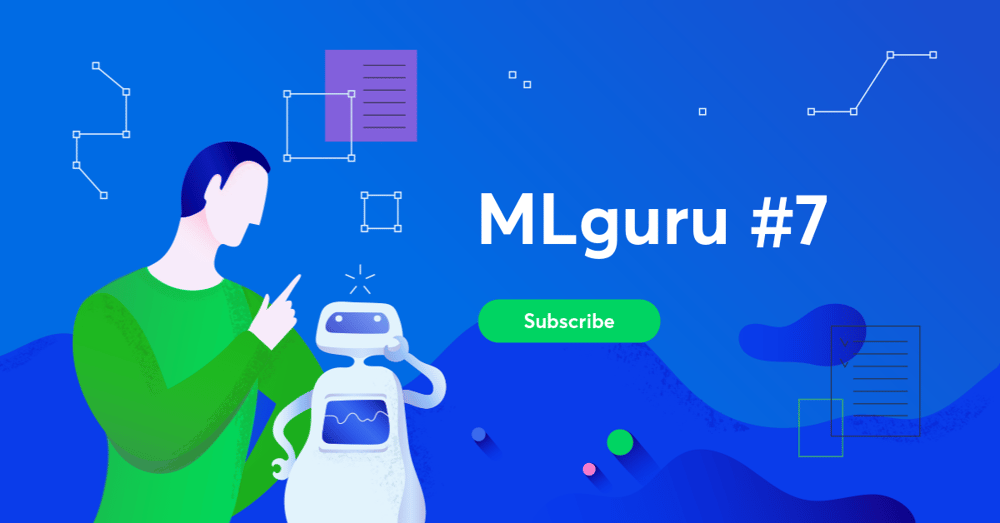🤖 MLguru #7: Free Machine Learning Workshop, Artificial Intelligence that fights cancer, and the German BERT

Also feel free to share this email if you know someone potentially interested .
During the workshop I will cover Fintech-related issues, but you can obviously also expect fresh content from other industries. Enjoy the read!
The Amazing Ways Hitachi Uses Artificial Intelligence And Machine Learning
For over a hundred years, the Japanese company Hitachi has focused on innovation and contributing to society through "the development of superior, original technology and products." Its machine learning and artificial intelligence technologies are impacting not only their own products and services but also other industries such as healthcare, finance, and shipping.
The company hopes its AI technology will help to fight breast and colon cancer through urine samples that can be collected by individuals in their home. Read more
6 Ways Machine Learning is Changing Insurance [Updated]
The insurance industry has always relied on data to calculate risk and come up with personalized ratings. Today, the sector is undergoing a profound digital transformation thanks to technologies such as machine learning.
Insurers are using machine learning to increase their operational efficiency, boost customer service, and even detect fraud. Here are 6 ways machine learning is transforming the insurance industry. Read more.
A German BERT that outperforms the Google multilingual model
Deepset, a German company focused on cutting-edge NLP, has just published their version of the BERT model, trained from scratch, that significantly outperforms the Google multilingual model in 4 of the 5 downstream NLP tasks. In the coming weeks they will also release a more in-depth article about their various experiments and insights, as well as code for running all the downstream tasks. Read more about the German BERT here.
A machine learning approach to predicting psychosis using semantic density and latent content analysis
Subtle features in people’s everyday language may harbor the signs of future mental illness. Machine learning offers an approach for the rapid and accurate extraction of these signs. Read about the research which analysed two potential linguistic indicators of psychosis in 40 participants of the North American Prodrome Longitudinal Study. It has shown how the linguistic marker of semantic density can be obtained using the mathematical method of vector unpacking, a technique that decomposes the meaning of a sentence into its core ideas and how the latent semantic content of an individual’s speech can be extracted by contrasting it with the contents of conversations generated on social media, or, in this case, 30,000 contributors to Reddit. Read more.








